Pharmaceutical drugs
For example, in 1743 the British King George II granted a patent to a Dr. John Hooper of Reading, England for the manufacture of abortion pills that were intended “for young women, when afflicted with what is commonly referred to as the irregularities”.
Many pharmacists, doctors and members of other professions peddled ‘Female Pills’‚ ‘Pilules pour dames’ or ‘Ladies’ Friends’, all of which were supposed to do the same thing: to overcome ‘menstrual irregularities’.Some of these products really did contain active pharmaceutical compounds, although they may only have been effective against stomach ache. Others were nothing more than a mixture of flour and milk powder, but the advertising talked about “thousands of thank you letters” from happy users as well as academic recognition and scientific proof in domestic and foreign universities.
The modern history of medical abortion begins in the 1960s.
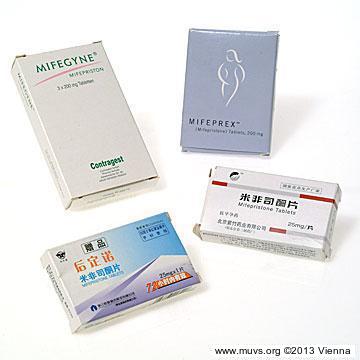
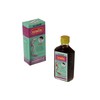 Benlow
Liquid for ladies' problems from Thailand
Benlow
Liquid for ladies' problems from Thailand
 Chinese Mifepristone Pills
The same efficacy as Mifegyne tablets. The yellow opaque blister …
Chinese Mifepristone Pills
The same efficacy as Mifegyne tablets. The yellow opaque blister …
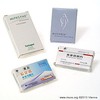 Chinese Mifepristone Pills
Medical abortion aid. The effect resembles the Mifegyne pills. White …
Chinese Mifepristone Pills
Medical abortion aid. The effect resembles the Mifegyne pills. White …
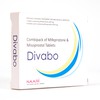 Divabo
The pack contains one tablet of Mifepristone and four tablets of …
Divabo
The pack contains one tablet of Mifepristone and four tablets of …
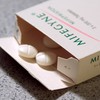 Mifegyne®
Some active agents induce the uterus to contract, which causes …
Mifegyne®
Some active agents induce the uterus to contract, which causes …
 Mifeprex™
The so called abortion pill (Mifepriston) approved for the U.S. …
Mifeprex™
The so called abortion pill (Mifepriston) approved for the U.S. …
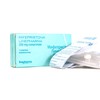 Mifepristona - Linepharma
Pill for abortion from Bulgaria.
Mifepristona - Linepharma
Pill for abortion from Bulgaria.
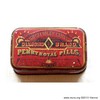 Pennyroyal Pills
Metal box
Pennyroyal Pills
Metal box
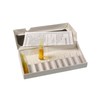 Rusuan Yisha´a Ding Sheye
Chinese abortion agent
Rusuan Yisha´a Ding Sheye
Chinese abortion agent
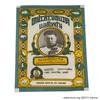 Tanjai
Thai Aspirin
Tanjai
Thai Aspirin
 Thai abortifacient
Wan Chuck Mod Look Chomjai Capsule
Thai abortifacient
Wan Chuck Mod Look Chomjai Capsule
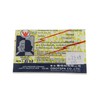 Thai Aspirin
Contains 0,65 gram of acetylsalicylic acid. Reminds of sugar packets …
Thai Aspirin
Contains 0,65 gram of acetylsalicylic acid. Reminds of sugar packets …
 Traditional thai abortifacient
'Tiger'
Traditional thai abortifacient
'Tiger'
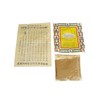 Traditional thai abortifacient
'Pagoden'
Traditional thai abortifacient
'Pagoden'
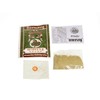 Traditional Thai abortion preparation
Front: dark green print with coiled snake with red eyes; …
Traditional Thai abortion preparation
Front: dark green print with coiled snake with red eyes; …
 Traditional Thai abortion preparation
A colourfully printed small paper bag shows a woman in …
Traditional Thai abortion preparation
A colourfully printed small paper bag shows a woman in …
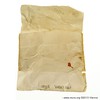 Unidentified medicinal balls from India
Yellow paper sachet with Indian script and 12 brownish balls.
Unidentified medicinal balls from India
Yellow paper sachet with Indian script and 12 brownish balls.
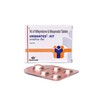 Unwanted - KIT
Kit of Mifepristone & Misoprostol Tablets
Unwanted - KIT
Kit of Mifepristone & Misoprostol Tablets
 Ya Flora
Thai abortion medicine
Ya Flora
Thai abortion medicine
 Ya Satree Bua Kaew
Thai abortion medicine
Ya Satree Bua Kaew
Thai abortion medicine
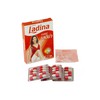 Ya Satree Ladina
Woman Herbal Capsule
Ya Satree Ladina
Woman Herbal Capsule